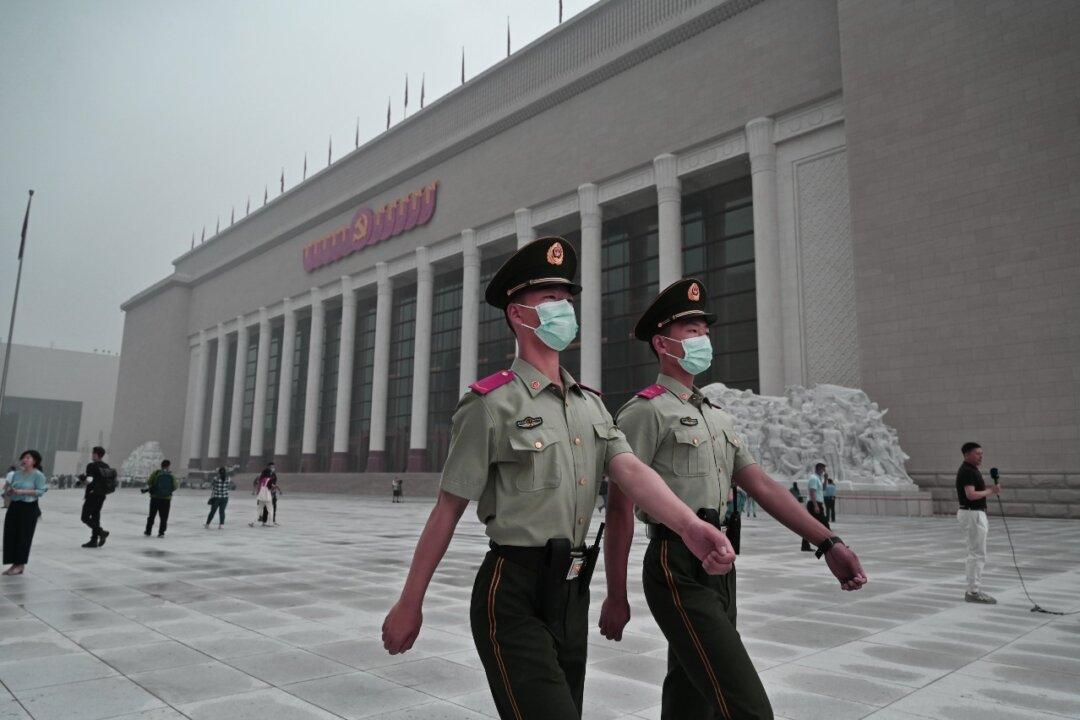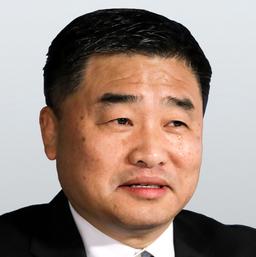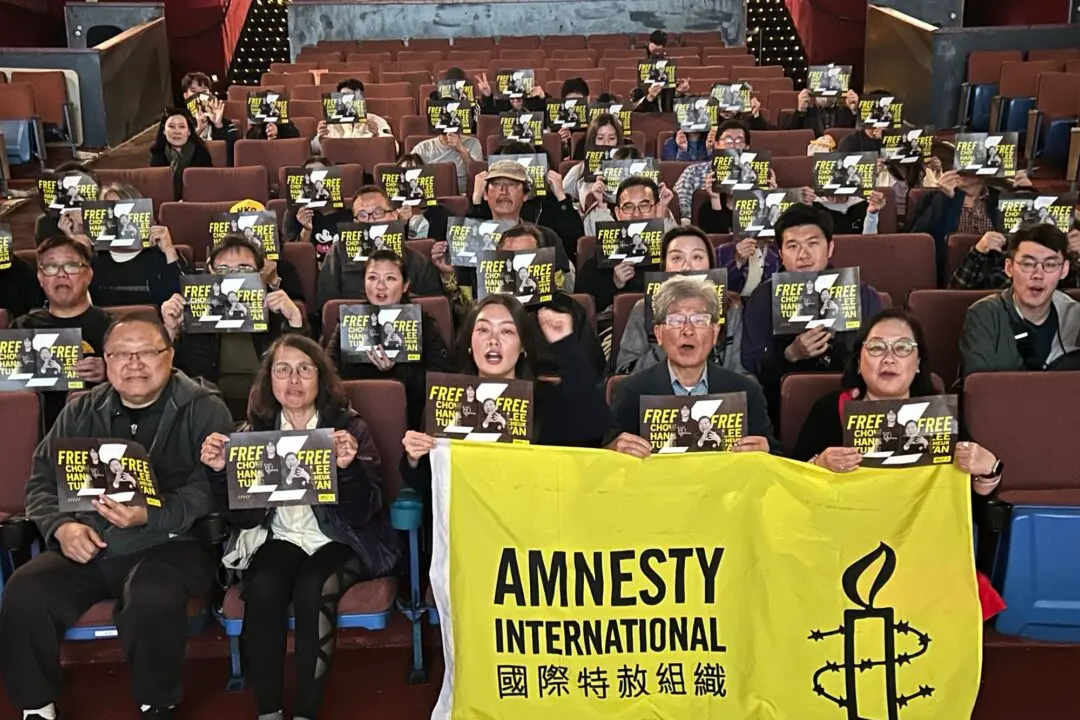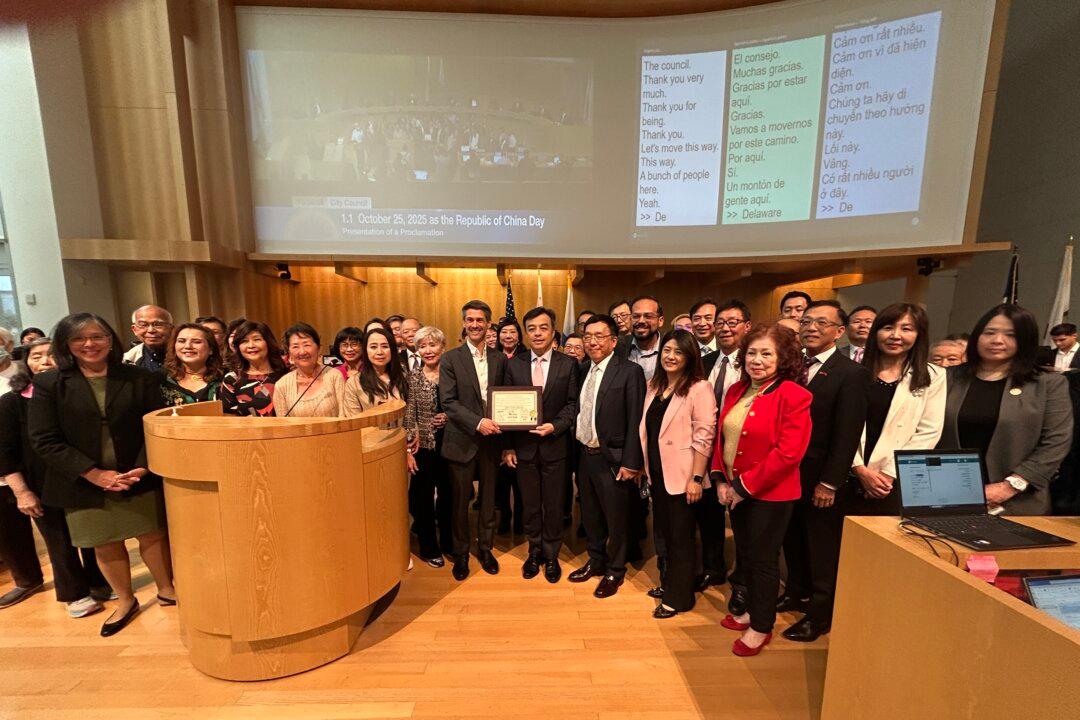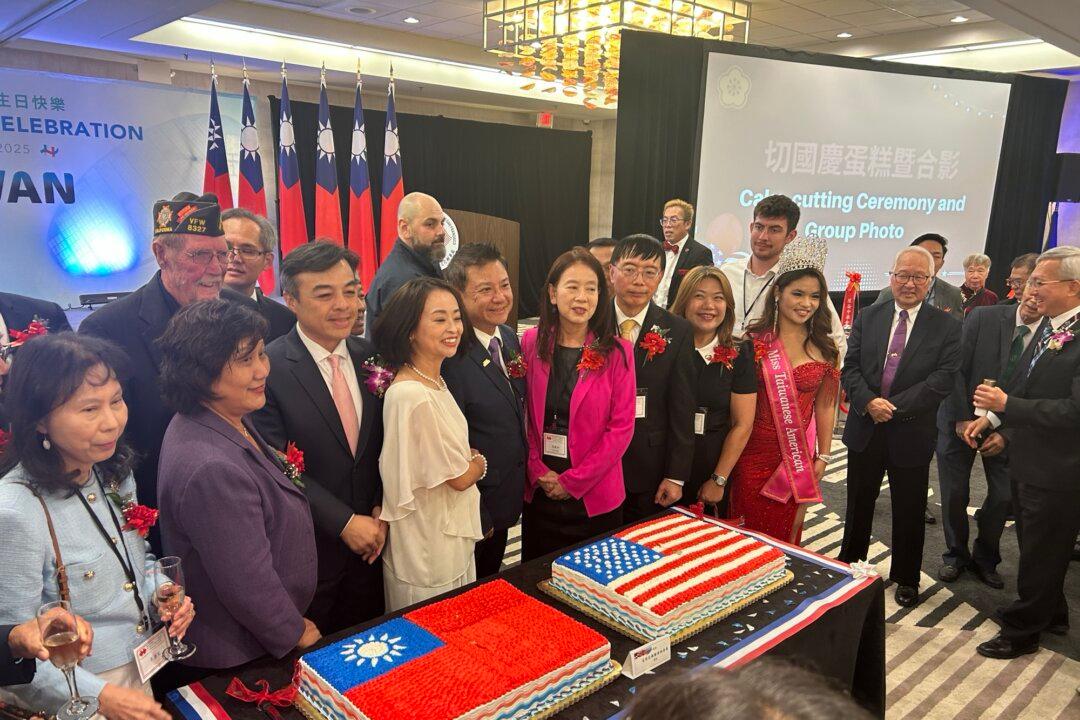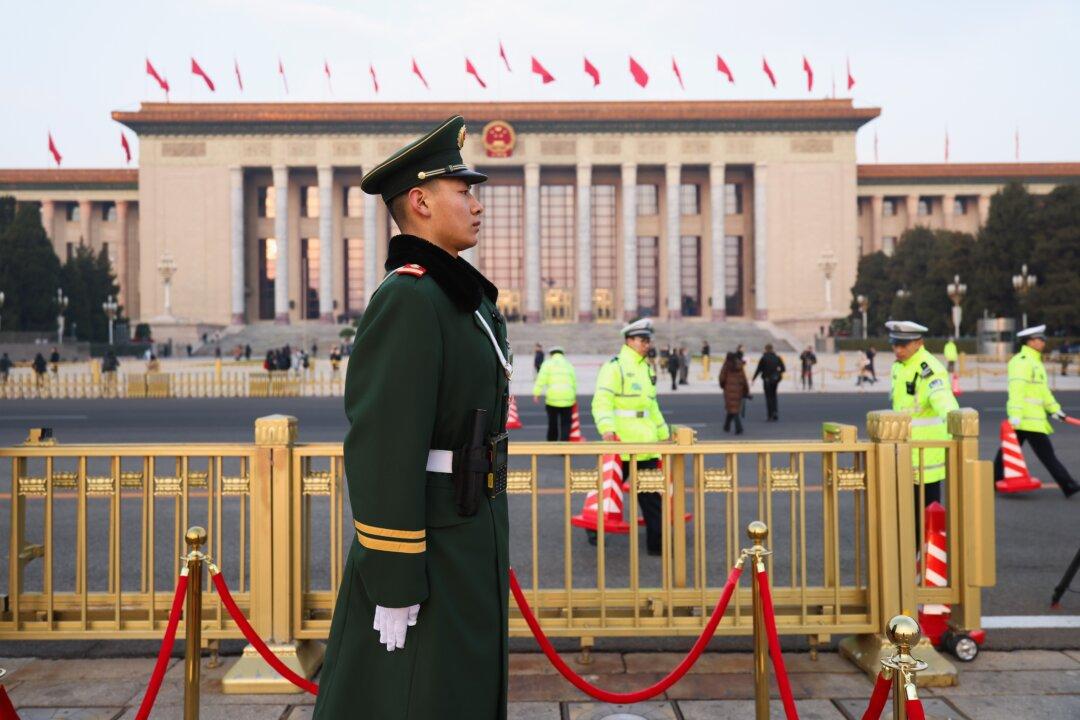As the regime in Beijing marks the Chinese Communist Party’s (CCP) 100th anniversary on July 1 with numerous events, overseas Chinese political dissidents are worried about the safety of their families in China.
For decades, political dissidents and minority groups persecuted in China have been conditioned by authorities to expect uninvited visitors—either policemen or security personnel—each year during certain sensitive time periods, usually the national holidays or days important to the CCP, such as July 1.
Parents Seized in China by Police Authorities
Yolanda Yao, a 36-year-old woman living in San Jose, California, told The Epoch Times that her elderly parents were recently detained in their apartment by police authorities in Nanyang City, Henan Province, which is located in central China.“My parents practice Falun Gong,” said Yao, who is also a Falun Gong practitioner.
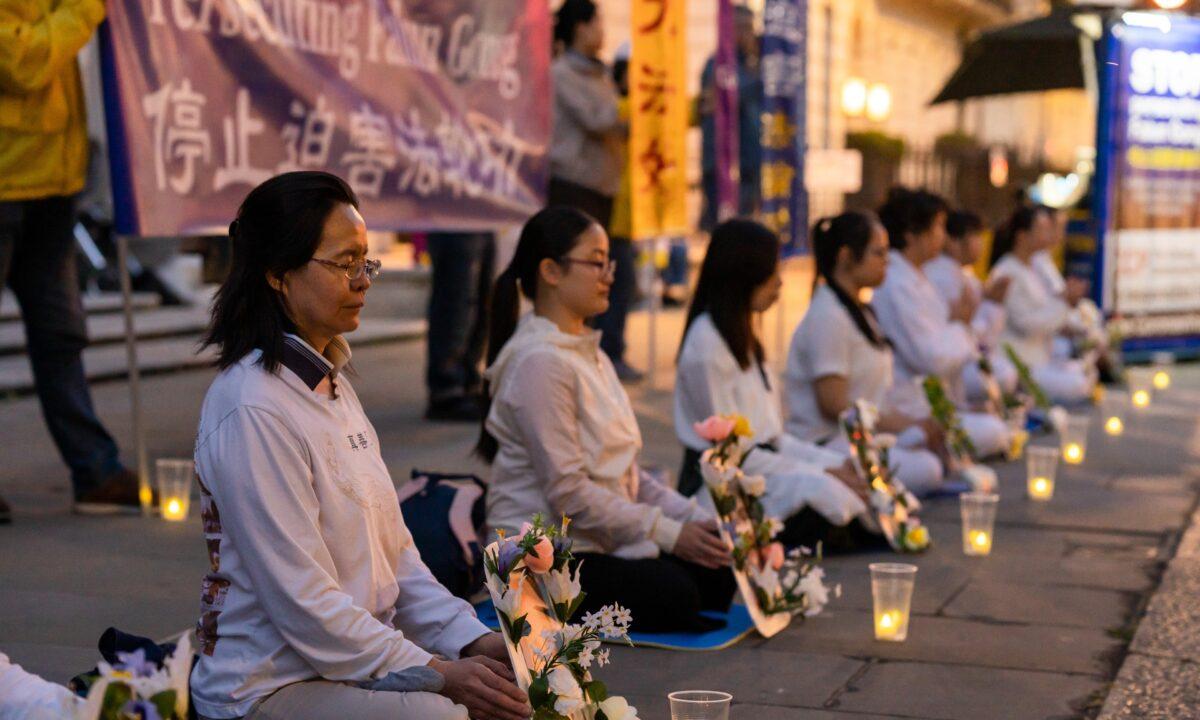
Falun Gong is an ancient spiritual practice rooted in traditional Chinese culture. The practice has five sets of meditation exercises, and practitioners follow three principles of truth, compassion, and tolerance in their daily lives. The CCP regime began to persecute the group in July 1999.
Yao said several policemen knocked on the door of her parents’ apartment on June 20 without a search warrant. When her parents refused to open the door, the policemen called the landlord of the apartment and forced the landlord to ask Yao’s parents to open the door.
Yao’s parents kept the door locked, so the policemen destroyed the door lock from the outside and unsuccessfully tried to break in. The policemen stayed outside of the building for an entire day before they left.
Yao said it still wasn’t safe for her parents to leave their apartment because the policemen had told them they would return every day during the period around July 1. Yao’s parents had to call relatives to ask them to deliver groceries.
Yao’s parents, Yao Guofu and Liang Xin, were arrested in December 2015 after authorities found materials in their home revealing the brutality of the Chinese regime’s persecution of Falun Gong. They were sentenced to jail for 4 1/2 years and were released in June 2020.
Yao said security officers from her parents’ community had come a few times before June 20 and harassed her parents by taking photos inside their apartment without permission and asking her parents to attend re-education classes.
Parents Fled China But Lost Retirement Pensions
Zheng Yun, an activist for China’s democracy in Northern California, also told The Epoch Times that she didn’t want to make any contact with her relatives in China during sensitive time periods such as the days around July 1.“I don’t contact my relatives in China [around July 1] for their own safety,” Zheng said.
Zheng was a grassroots activist for democracy in China before she fled to the United States in 2016. The Chinese regime arranged a large-scale persecution against human rights activists on July 9, 2015, arresting hundreds of human rights lawyers and legal experts throughout the country. Many of them were later sentenced to jail in 2016 and 2017. Zheng and her husband fled to the United States as political refugees.
Zheng is currently the chairwoman of the Northern California branch of The Federation for a Democratic China, a Canada-based political group that advocates for the democratization of China through opposition to the CCP. She is also a board member of the Chinese Democracy Education Foundation, a San Francisco-based nonprofit organization promoting the prosperity and progress of Chinese society for democracy, freedom, and human rights.
Zheng’s active involvement in China’s democracy movement in the United States drew attention from China’s state security department. The department contacted the state-owned factory she had worked for before she left China and made a public announcement that no one should contact her. They also spread rumors stating that Zheng and her husband had become homeless in the United States.
Zheng’s elderly parents retired from a state-owned factory in China. Worried about the situation of Zheng, they came to visit her in 2019. Zheng’s relatives told her that the local police authority searched her parents’ home after they left China.
Zheng’s relatives and her close friends have been repeatedly harassed by police.
In the United States, Zheng and her parents received phone calls from police authorities in China. They threatened Zheng’s parents to go back to China, but Zheng convinced her parents to stay for their own safety. Chinese authorities later stopped Zheng’s parents from receiving their retirement benefits.
At the end of 2020, Zheng’s friends in China told her that the local police authority was spreading a new rumor: Zheng couldn’t survive in the United States, went back to China, and had been arrested and put in jail in Shanghai.
Hoping to Visit His Mother’s Grave
Cheng Kai retired last year from Radio Free Asia after working there as a reporter for more than two decades. As a political dissident who fled China in 1990, his biggest dream is that one day he can go back to China and lay flowers on his mother’s burial place.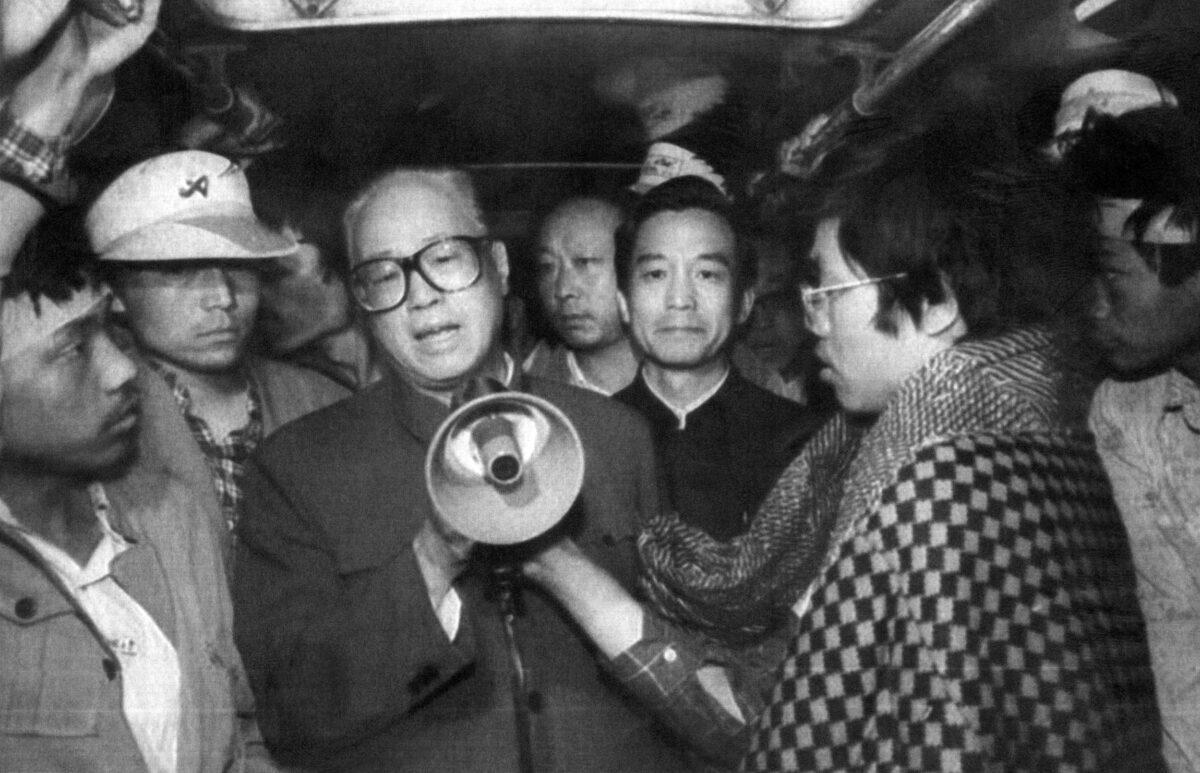
Cheng hasn’t been able to return to China since he escaped to the United States.
When Cheng learned that his mother was seriously ill in the fall of 2017, he applied for a visa at the San Francisco Chinese Consulate, hoping he could visit his mom in China. The consulate refused to give him a visa. His mother died in January 2018 and he wasn’t able to visit her before she died.
Cheng once again applied for a visa in hopes to attend his mother’s funeral. In order to convince the consulate to let him go to China, he turned in his application to the consulate with a written promise: He wouldn’t do anything else in China other than attend the funeral. His application was again rejected.
During the 1989 Tiananmen Square student democracy movement, Cheng was the chief editor of Hainan Daily, which was a state-owned official provincial level newspaper in China’s Hainan Province.
Cheng was a firm supporter of the democracy movement. He openly supported the movement by publishing a front-page picture of the students and Zhao Zhiyang standing together at Tiananmen Square. Zhao was the CCP secretary-general and supported political reform in the CCP. Zhao later lost his leadership position and was placed under house arrest for the remainder of his life.
Cheng was removed from his chief editor’s position after the 1989 Tiananmen Square massacre and then-CCP leader Jiang Zemin made a direct order to investigate him. Cheng secretly left China with help from other supporters of the democracy movement.
Cheng told The Epoch Times that his mother had never stopped supporting him. She cried on her death bed because she missed her oldest son, Cheng.
“I hope that one day in my lifetime, I will have a chance to visit my mother’s cemetery and lay down flowers in front of her monument,” Cheng said.
